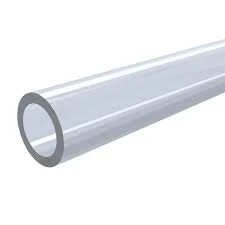nov . 11, 2024 11:08 Back to list
hdpe panel
The Versatility and Benefits of HDPE Panels
High-Density Polyethylene (HDPE) panels are rapidly gaining popularity across various industries due to their exceptional durability, versatility, and environmental resistance. These panels, made from a thermoplastic polymer, are known for their high strength-to-density ratio, making them ideal for a multitude of applications ranging from construction to food processing.
One of the primary benefits of HDPE panels is their superior resistance to moisture and chemicals. Unlike wood or metal, HDPE does not rot, corrode, or degrade when exposed to harsh environmental conditions. This makes HDPE panels an excellent choice for applications in humid, salty, or chemically reactive environments. For instance, in marine applications, HDPE panels are often used for docks and boat ramps, as they can withstand the elements without succumbing to damage.
The Versatility and Benefits of HDPE Panels
In addition to their functional properties, HDPE panels are also lightweight and easy to handle. This characteristic simplifies transportation and installation, making it a favored material among contractors and builders. HDPE panels can be easily cut, shaped, and joined, allowing for a range of design possibilities. Whether it's creating smooth surfaces for countertops or rigid structures for walls, HDPE panels can be tailored to meet specific requirements.
hdpe panel

Another significant advantage of HDPE is its hygienic properties. The non-porous surface of HDPE makes it easy to clean and maintain, making it an ideal choice for the food and pharmaceutical industries. In environments where cleanliness is paramount, such as kitchens, hospitals, and laboratories, HDPE panels provide a secure and sanitary surface. They do not support bacterial growth, which is essential in preventing contamination.
Recycling is another critical aspect to consider, as environmental sustainability continues to be a significant concern globally. HDPE is one of the most recyclable plastics. Used HDPE products can be reprocessed to create new materials, reducing waste and promoting a circular economy. The ability to recycle HDPE panels also enhances the appeal of this material for environmentally conscious consumers and businesses.
Furthermore, HDPE panels are cost-effective compared to traditional materials. Their durability translates into lower maintenance costs over time, and the initial investment in HDPE panels is often offset by their longevity and ease of maintenance. Industries utilizing HDPE panels—such as agriculture, construction, and manufacturing—benefit from lower operational costs and increased efficiency.
In conclusion, HDPE panels represent a remarkable fusion of durability, flexibility, and sustainability. Their resistance to moisture, chemicals, UV radiation, and bacteria makes them suitable for diverse applications across various sectors. Together with their lightweight nature and recyclability, HDPE panels offer not only practical benefits but also contribute to an environmentally sustainable future. As industries continue to seek materials that can withstand the test of time while minimizing environmental impact, HDPE panels stand out as a top choice, proving that innovation and sustainability can go hand in hand. The future of HDPE looks bright, with potential applications expanding in new and exciting directions, adapting to the needs of our modern world.
-
Durable PP Rigid Sheet: Lightweight, Chemical Resistant Solutions
NewsAug.21,2025
-
PVC Grey Sheet for Extraction: Chemical Resistant & Durable
NewsAug.19,2025
-
Durable PVC Pipe Fittings for Plumbing & Irrigation Needs
NewsAug.18,2025
-
HDPE Steel Belt Reinforced Spiral Corrugated Pipe | High Strength
NewsAug.17,2025
-
HDPE Pipe Fittings: Durable, Leak-Proof Solutions
NewsAug.16,2025
-
Premium CPVC Sheet: High-Temp & Chemical Resistant Solutions
NewsAug.15,2025

